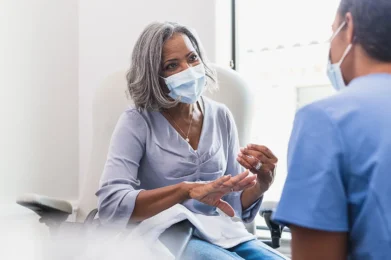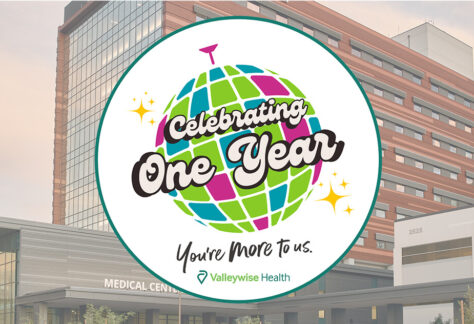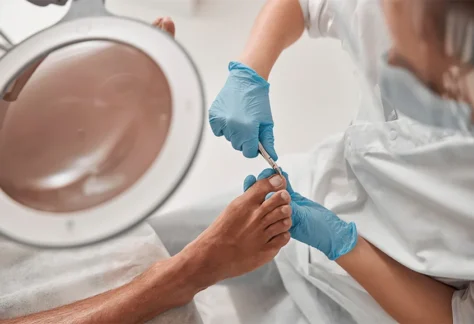In This Article:
- Old wives’ tales about health have been around for generations. But with recent research, we’ve been able to prove or disprove many of the most common health misconceptions.
- Explore 18 well-known medical myths that have been debunked as either true, false or partially true.
- When you hear a medical myth, be sure to use common sense, be skeptical and always back up your information with reliable sources.
Medical research has rapidly advanced in recent years, and as a result, we’ve found the truth behind many of the world’s most common health misconceptions. Prepare to be surprised as we debunk medical myths and old wives’ tales from the past — some are factual, some are false and many fall somewhere in between.
Do you need eight glasses of water per day?
Not Necessarily. How much you should hydrate depends on the humidity and average temperature of your state’s climate, as well as your activity level and genetics. Your body does need a certain amount of fluid per day, but it may not be eight glasses — there is no set number. If your urine is light or clear, however, this is always a good indication that you’re properly hydrated.
Is it dangerous to hold in a sneeze?
Yes! Believe it or not, this one is true. When you purposely prevent a sneeze, you place too much pressure on your sinuses and lungs. This can lead to burst blood vessels, ruptured eardrums, an irritated throat and more. Our doctors have seen plenty of patients who held in their sneezes one too many times. Adverse effects are rare, but they’re possible. The next time you’re about to sneeze, be sure to let it all out — especially if you have a pre-existing respiratory disease!
Is there any truth to the five second rule?
Possibly. This is one situation where you may just have to use your best judgement. If you’re at home and drop a cracker onto your clean wood floor, it’s probably safe to eat. If you’re at the park and drop your sticky lollipop onto the ground, that’s a different story. Since this so largely depends on the food and the surface, doctors still don’t have a definite answer. In this case, common sense is your friend!
Do we only use 10% of our brain capacity?
No. We don’t know exactly how much of our brain capacity we do use, but it’s certainly more than 10%. Although CT and MRI scans have proven that we underutilize certain parts of our brain, even the simplest activities activate most of it. Some people can use more areas than others, so the exact percentage depends on the person.
If you pull out a single grey hair, will more than one hair grow in its place?
No. If you pull out a single hair follicle, it’s impossible for two hairs to grow in its place. Consider this medical myth debunked!
If we shave, will our hair grow back darker and coarser?
Possibly. You can stimulate hair growth by shaving, but how it comes back largely depends on your genetics. Usually, it doesn’t regrow any coarser or darker than before — however, it will come back more quickly.
Does reading in low light have an adverse effect on your eyesight?
Not necessarily. Eye strain exists, but each person has a different light tolerance. If you can read adequately in dim light without feeling strain or pain on your eyes, then by all means — enjoy your book in the dark! If it feels like a struggle to read in low light, it may not be for you. Once again, this depends on the person and their preference.
Do people shrink as they age?
Yes! As you age, the space between the vertebrae (or bumps) on your spine can decrease, therefore shrinking you by an inch or two.
Does cracking your knuckles lead to arthritis?
No. There is no truth or evidence behind this common health misconception whatsoever. Crack away, if you must — but note that this may slightly decrease your grip strength over time.
Does eating turkey make you sleepy?
Not necessarily. Turkey has a reputation for making people feel tired because it contains tryptophan, an amino acid that’s often linked with sleep. But the reality is, you’d be surprised by how many other foods are also high in tryptophan. Yes, eating turkey might contribute to your post-Thanksgiving drowsiness — but the mashed potatoes, stuffing and pie are also to blame.
Do you need to stay awake after a concussion?
No. Back in the day, the only way to test brain function in a concussed person was to wake them every hour and gauge their level of responsiveness. Now, CT, MRI and PET scans can tell us how alert and oriented a patient is. In fact, we now know that the brain recovers more quickly when it gets lots of rest.
Is it bad to go swimming right after I eat?
No. Despite what your mom may have told you about this common health misconception, you don’t need to wait an hour before jumping into the pool. The original theory was that your body burned so much energy digesting your food that it didn’t have enough leftover blood flow to reach your arms and legs, causing you to drown. This is false. The only danger of swimming right after you eat is a potentially upset stomach.
Can supplements help you fight a cold?
Possibly. Nutrients like vitamin C can help shorten a cold by giving your immune system a boost, but only if taken correctly and in moderation. In this case, it’s possible to have too much of a good thing. Excess from irresponsible dosage can lead to kidney and liver failure, so talk to your doctor before attempting to cure your cold with supplements!
Do candy and other sugary foods cause bad acne?
Not Necessarily. Sugar definitely doesn’t help your acne, but it also won’t cause it. As long as you’re not consuming sweet snacks by the pound, sugar and candy will likely have little effect on your skin. The amount of acne you have is almost solely based on your genetics and hormones.
Is it dangerous to wake someone who is sleepwalking?
Not Necessarily. There is no long-term danger in waking a sleepwalker. However, it’s better to quietly walk the person back to bed instead of waking them with force. This protects the sleepwalker from disorientation (and you from getting hit in the face).
Does urine help cure a jellyfish sting?
Possibly. You’ll need to wash off the sting with some sort of acid or base solution. What that solution is, exactly, is up to you. Urine has neither been proven nor disproven. However, we’d suggest washing with soap and water, instead, to avoid the public indecency charge.
Does using a cell phone in the hospital interfere with the medical equipment?
No. At the dawn of the cell phone, some people were hesitant to use them in hospitals. Now that they’ve been around for a while, we know that they have no effect on the surrounding medical technology.
Does an apple a day keep the doctor away?
Possibly. If you’re just talking about apples, then there’s no guarantee that those alone will keep you doctor-free. A generally healthy diet, however, has indeed been proven to lower the risk of chronic conditions and diseases. Unprocessed, fiber-rich foods are good for your gut and overall health, and apples certainly fall into this category.
Although we’ve come a long way in debunking medical myths and old wives’ tales, there are still plenty of common health misconceptions that medical professionals have yet to answer. Remember–if you ever hear something that sounds too good to be true, it probably is. Be sure to use common sense, be skeptical and always back up your information with reliable sources.
Sources:
- https://www.health.harvard.edu/pain/does-knuckle-cracking-cause-arthritis
- https://www.ncbi.nlm.nih.gov/pmc/articles/PMC2908021/
- https://uamshealth.com/medical-myths/is-it-dangerous-to-wake-a-sleepwalker/#:~:text=It%20is%20not%20dangerous%20to,bed%20without%20making%20forceful%20attempts.&text=Other%20factors%20can%20cause%20sleepwalking,and%20periodic%20limb%20movement%20disorders.








